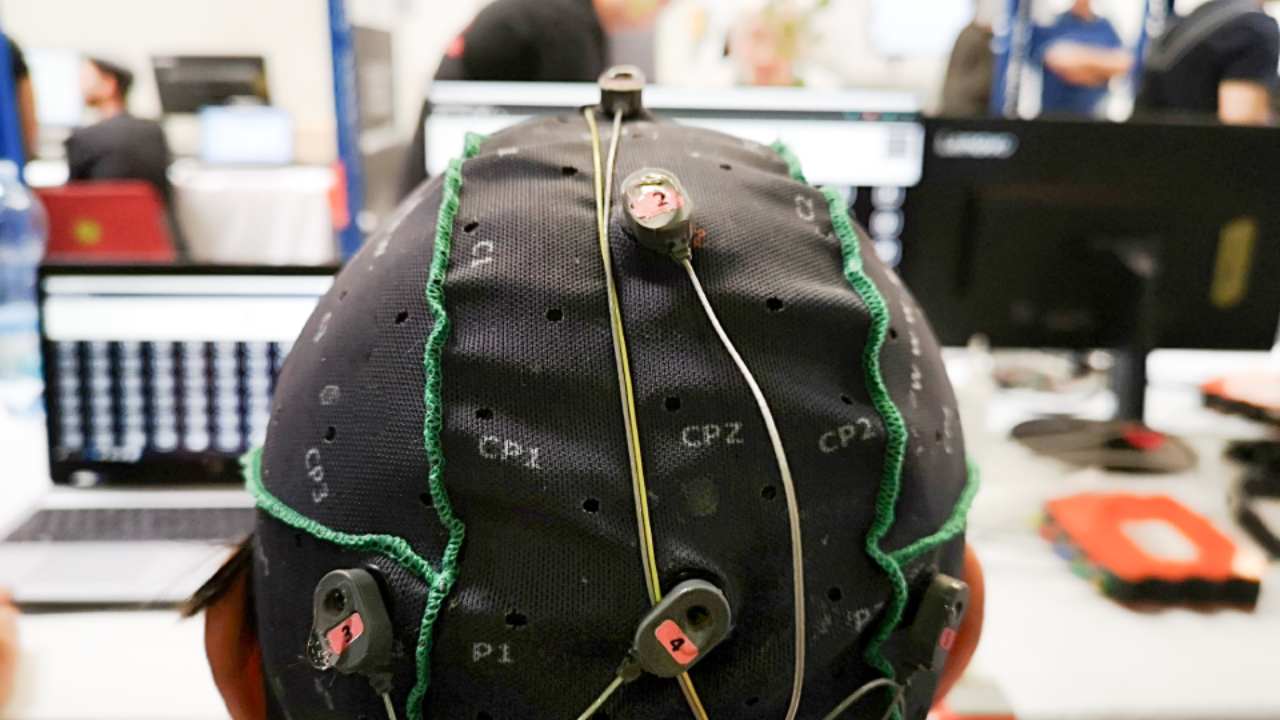
Sugar, screen time, and sleep habits have long been connected with dementia. A study conducted by Rotman Research Institute, part of the Baycrest Academy for Research and Education (BARE) found that these everyday factors influence how the brain ages and how vulnerable it becomes to decline, and may even mediate the progression to dementia.
So, if sugar, screens, and sleep are not direct causes, how do they interact with the brain to influence long-term dementia risk?
Why Blood Sugar Matters for Brain Health
Research has shown that higher blood sugar levels, even in people without diabetes, are associated with lower brain activity in regions that support memory, attention, and emotional control. This effect was particularly evident in older adults and women, suggesting that subtle metabolic changes affect brain function before clinical illness develops.
The same study also found that elevated glycated hemoglobin (HbA1c), a long-term marker of blood sugar, was tied to reduced heart rate variability, evidence that the body’s stress regulation and the brain’s connectivity are disrupted together.
Other large studies have reinforced this connection. Adults with type 2 diabetes have nearly double the risk of developing dementia. This is driven by vascular damage, insulin resistance, and impaired blood flow to the brain.
Even in non-diabetic adults, unstable blood sugar patterns, linked to irregular sleep and late bedtimes, correlate with reduced brain activity and weaker memory performance. Managing blood glucose is therefore relevant not only for preventing diabetes but also for maintaining cognitive resilience.
How Screen Habits Affect Brain Health and Memory
Screens are often singled out as harmful, with claims that they “kill brain cells.” The evidence does not support this simplistic view. Instead, it points to the negative consequences of prolonged and passive use.
A Stanford-affiliated study found that adults who spend several hours daily in recreational screen use show measurable thinning of the cerebral cortex in areas tied to memory and decision-making.
Data also indicates that people who watch television for more than three hours daily have an increased risk of dementia, with risk escalating at higher viewing durations. Importantly, these patterns align with research showing that sitting for more than 10 hours a day raises dementia risk by up to 63%, independent of other health factors.
But the story is not one-sided. A meta-analysis of 57 studies found that older adults who actively engage with digital technology using smartphones or computers for problem-solving, communication, or learning had 42% lower odds of cognitive decline. The critical distinction is between passive, prolonged viewing and interactive, stimulating use. Moderate screen time for connection and cognitive engagement appears neutral or even protective.
How Does Poor Sleep Affect Brain Health and Dementia Risk?
Sleep is sometimes underestimated in its role for cognition. A Baycrest study found that even a single night of deep sleep strengthens memory for sequences, with benefits that can last up to 15 months. These effects depend on slow-wave sleep patterns, where brain activity couples with spindles to replay and consolidate memories.
Other evidence links disrupted or shortened sleep with both metabolic and cognitive changes. Inadequate sleep destabilizes blood sugar, reduces the brain’s ability to repair itself, and accelerates decline in memory and attention. Conversely, people with healthy sleep patterns, meaning consistent bedtimes, sufficient duration, and minimal interruptions, show stronger cognitive outcomes in longitudinal studies.
Deep sleep does not just benefit memory. It is essential for clearing metabolic waste, including beta-amyloid, a sticky protein that can accumulate in the brain and interfere with cognition. Impaired clearance during chronic sleep loss is one proposed mechanism for the link between poor sleep and Alzheimer’s disease.
Large studies confirm that both too little and too much sleep raise the risk of decline. A JAMA Neurology study found that adults sleeping fewer than six or more than nine hours per night displayed higher levels of beta-amyloid in the brain and poorer performance on memory tests. Similarly, poor-quality slow-wave and REM sleep have been linked to faster brain changes in regions tied to learning and memory, which could be a risk factor for dementia. Thus, the evidence underscores the role of sleep in long-term brain health.
Myth vs. Facts: What the Research Shows
It’s easy to assume sugar, screens, or sleep alone determine dementia risk. Yet, research shows that these habits influence the brain through overlapping pathways, not single culprits.
Myth: Sugar directly causes dementia.
Reality: Elevated blood glucose disrupts brain networks and damages blood vessels, but it is one factor among many. Poor sleep makes this worse by destabilizing blood sugar regulation, while sedentary time from prolonged screen use reduces the protective effects of physical activity.
Myth: Screens destroy the brain.
Reality: Passive, prolonged screen use is linked to cortical thinning and higher dementia risk, but moderate, purposeful use may be neutral or beneficial. The real concern is how heavy screen time feeds into late-night use, poor sleep quality, and reduced activity, all of which indirectly affect cognition.
Myth: Sleep doesn’t really matter for memory.
Reality: Deep sleep consolidates learning and clears metabolic waste. The brain struggles to repair itself, blood sugar becomes harder to control, and attention and memory decline when quality sleep is cut short. Over time, this raises vulnerability to dementia.
Sugar, screens, and sleep don’t act in isolation. Their effects overlap. Poor sleep destabilizes blood sugar, sugar intake disrupts rest, and prolonged screen use worsens both. Together they form feedback loops that wear down the brain’s defenses. This shows that it is long-term lifestyle patterns, not single habits, that are the real driver of dementia risk.
Final Takeaway
We haven’t yet found a cure for dementia, but through research and studies, we’ve learned that everyday choices shape how the brain ages. Managing blood sugar, moderating screen use, and protecting sleep can build cognitive resilience and reduce risk for dementia. This makes lifestyle habits into one of the strongest tools for long-term brain health.
Frequently Asked Questions
Is there a connection between blood sugar and dementia?
High blood sugar and diabetes are linked to greater dementia risk. Research shows that elevated glucose can reduce brain activity in memory networks, while diabetes nearly doubles dementia risk through vascular damage, inflammation, and impaired energy use in brain cells.
Can cutting sugar help with dementia?
Cutting out sugar cannot reverse dementia. Still, limiting foods high in sugar and focusing on a balanced diet can help maintain steady blood glucose, lower inflammation, and, in some cases, sustain cognitive clarity.
Why do dementia patients crave sugar?
Individuals with vascular dementia often develop stronger cravings for sweet foods. This change is tied to brain regions involved in taste, self-control, and mood, combined with hormonal shifts and age-related loss of taste sensitivity. The result can be higher sugar intake and less balanced diets.
Can poor sleep increase dementia risk?
Yes. Research shows that both too little and too much sleep can increase the risk of dementia. Consistently getting seven to eight hours of quality sleep appears most supportive of long-term brain health.
Can too much screen time raise dementia risk?
Yes. Prolonged screen use, such as watching TV for more than three hours daily, is linked to higher dementia risk and brain changes. Moderate, purposeful use, like learning or communication, does not show the same risks and may even support cognitive health.
Related Articles: Brain Matters, Research









